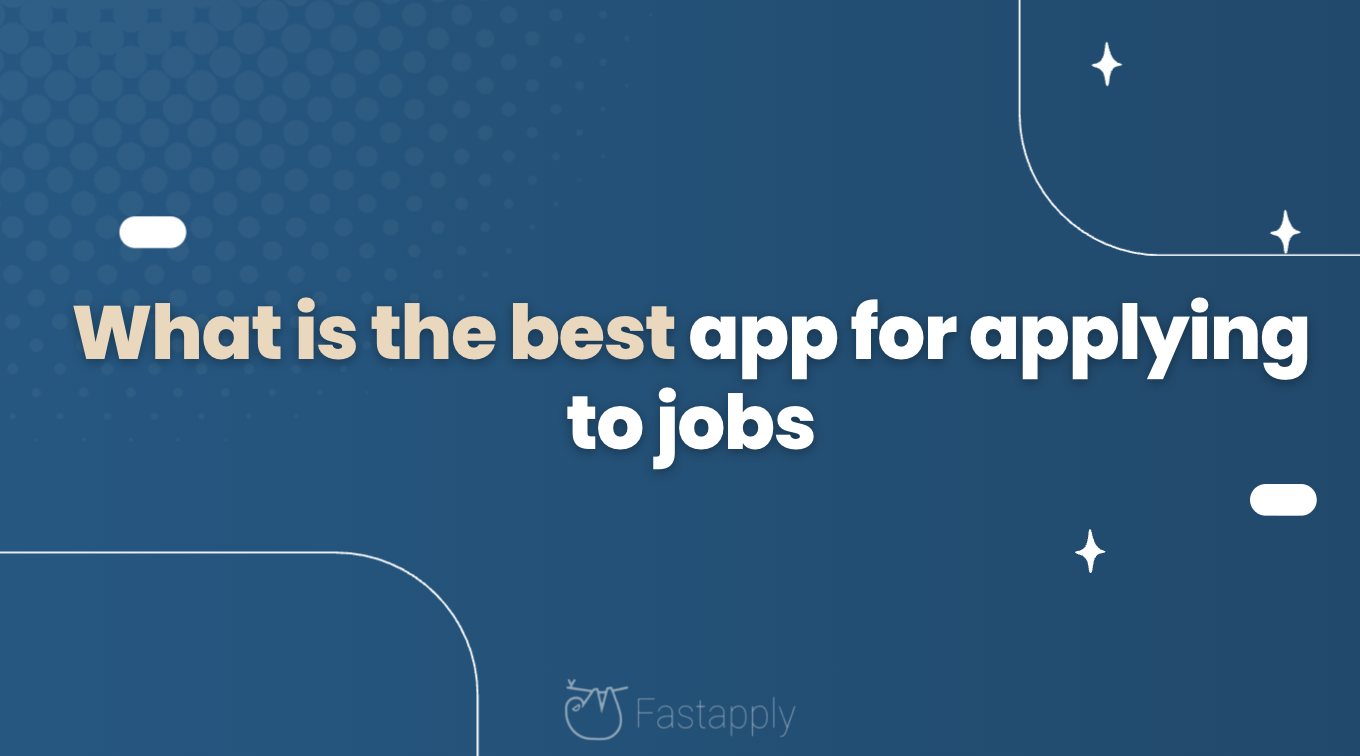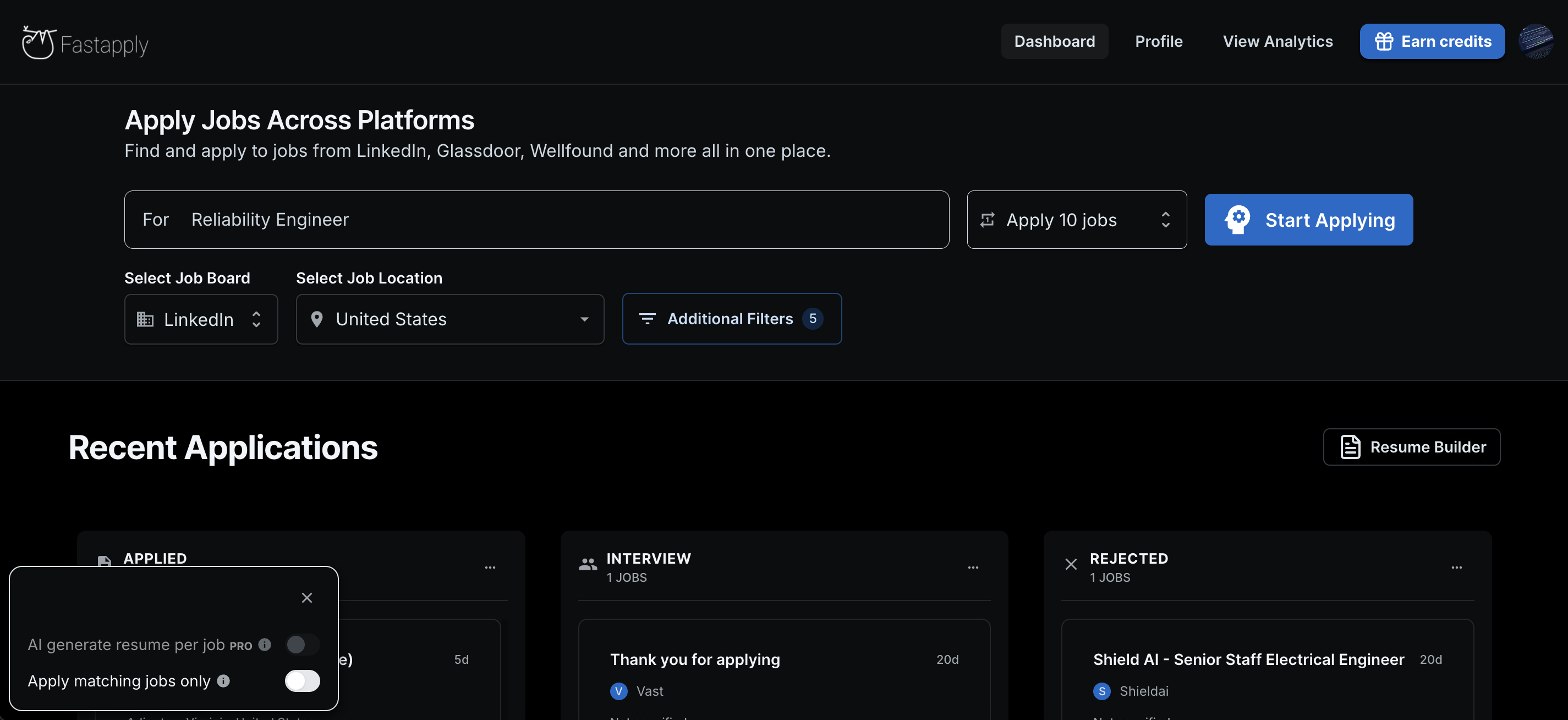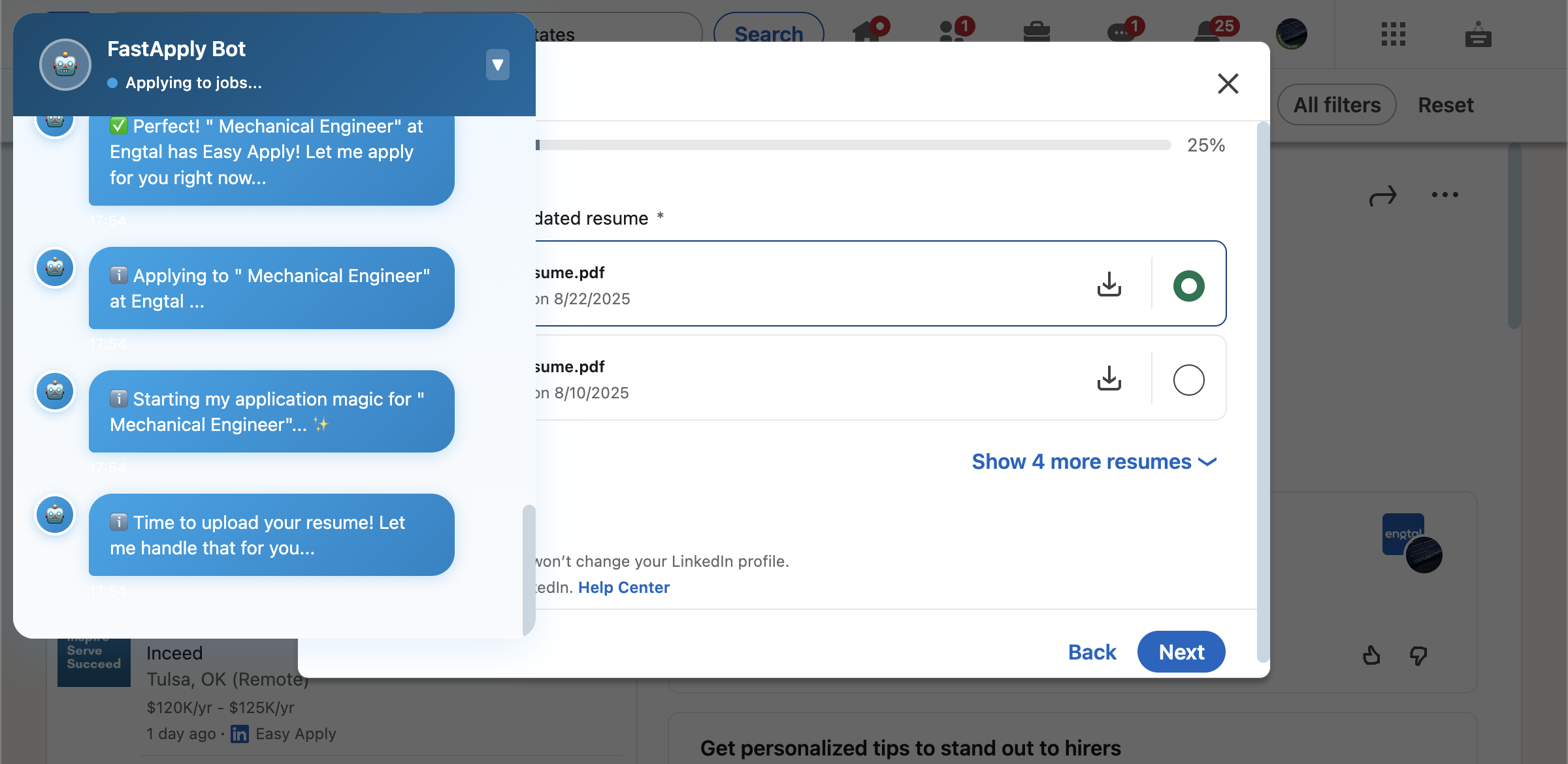What is the best app for applying to jobs

Introduction
Looking for a job feels like a job of its own. Every listing demands time, patience, and effort. You rewrite your resume. You re-enter the same details across multiple platforms. You attach documents again and again. After hours of clicking and typing, you get silence.
It’s natural to ask: what is the best app for applying to jobs? Which tool saves you from wasting hours while still improving your chances of landing interviews?
The answer isn’t one of the familiar names like LinkedIn or Indeed. It’s FastApply, a platform designed to solve the exact problems job seekers face. But to see why, let’s start with what you’re using today.
Job boards
Job boards are where most searches begin. They bring together millions of listings and millions of candidates. They make the hunt visible, but they also bring competition.
The top players include LinkedIn, Indeed, Glassdoor, Wellfound, and ZipRecruiter. Each has advantages, but none removes the heavy workload of repeated applications.
Comparison of job boards
| Platform | Strengths | Weaknesses |
|---|---|---|
| Global reach, strong recruiter access | High competition, premium fees | |
| Indeed | Largest volume of listings, global scale | Many duplicates, mixed quality |
| Glassdoor | Reviews and salary insights alongside jobs | Limited listings in some fields |
| Wellfound | Startup-focused, direct access to founders | Smaller pool, niche roles |
| ZipRecruiter | AI-based matching, wide distribution | Less control, broad targeting |
Job boards succeed at volume. They give you access to thousands of open roles. But that volume creates problems. You’re competing with hundreds of applicants for each posting. You often see duplicates across boards. You rarely hear back.
Applicant Tracking Systems
Behind most job postings sits an Applicant Tracking System, or ATS. These platforms aren’t designed for you. They’re built for employers to manage applicants at scale.
ATS systems scan resumes for keywords, rank candidates, and reject those who don’t match. That means even strong applicants get filtered out before a recruiter ever looks at them.
Some of the most common ATS platforms include Greenhouse, Lever, Workable, and Ashby.
Comparison of ATS platforms
| Platform | Strengths | Weaknesses |
|---|---|---|
| Greenhouse | Structured hiring, analytics | Steep learning curve for job seekers |
| Lever | Collaboration tools | Complex application forms |
| Workable | Simple interface | Limited customization |
| Ashby | Strong reporting | Less widespread adoption |
For job seekers, ATS creates three challenges:
- You must tailor your resume to keywords for each role.
- You spend time filling long forms.
- You face silence if your resume doesn’t match the algorithm.
ATS helps employers. For candidates, it’s another barrier.
Easy Apply vs Manual Apply
When you use job boards like LinkedIn or Indeed, you often see “Easy Apply.” With one click, your saved resume gets sent to the employer. Manual Apply usually routes you to the company’s site, where you fill out a full application.
Both have tradeoffs.
Comparison
| Method | Benefits | Downsides |
|---|---|---|
| Easy Apply | Fast, one click, quick visibility | Generic resume, less customization |
| Manual Apply | Tailored, full application | Time consuming, repetitive |
Easy Apply saves time but doesn’t give you a chance to stand out. Manual Apply lets you customize, but it can take 30 to 60 minutes per role. Multiply that by dozens or hundreds of applications and you see the drain.
The gap between speed and personalization
This is the central challenge for job seekers. You either apply quickly but look generic, or you apply carefully but move too slowly. Recruiters often notice early applicants first, so waiting costs you. But rushing means you look like everyone else.
This tradeoff leaves many candidates stuck. You spend hours tailoring resumes, only to miss deadlines or lose momentum. Or you blast out generic applications and rarely hear back. Neither path works well.

FastApply as the solution
FastApply was built to solve this exact problem. It combines the speed of Easy Apply with the personalization of Manual Apply. It automates repetitive tasks while tailoring your resume and cover letter to each role.
With FastApply you get:
- Integration with major job boards and ATS platforms
- Automatic resume adjustments for keywords and requirements
- Tailored cover letters written to match each posting
- One dashboard to track all applications
- AI-assisted answers to repeated form fields
- Analytics that show what works and what doesn’t
You save hours. You apply earlier. You still look like a strong, tailored candidate.

Why FastApply wins
Let’s compare FastApply to the current options.
- Job boards give you listings but no efficiency. FastApply works across them, applying faster and smarter.
- ATS creates barriers. FastApply adapts your resume to pass filters.
- Easy Apply is quick but generic. FastApply is quick and tailored.
- Manual Apply is tailored but slow. FastApply is tailored and fast.
Example: Without automation, you might apply to 5 jobs in a night. With FastApply, you apply to 50, each with a resume matched to the posting. That volume increases your odds. The tailoring improves your chances of passing ATS. Recruiters see your application early, and they see a fit.
FastApply also offers flexible plans. The free tier includes basic automation. Paid tiers expand your daily applications, add unlimited tailoring, and include analytics. Pricing stays affordable, starting at the cost of a single coffee per month.
Relief for job seekers
Beyond the numbers, FastApply solves the emotional weight of job hunting. Hours spent filling forms leads to fatigue and burnout. Silence after weeks of effort leads to frustration.
FastApply brings relief. It reduces the time you spend on repetitive tasks. It keeps you consistent by applying daily without draining your energy. It gives you visibility into your progress so you don’t feel lost.
The result is more than efficiency. It’s confidence. You apply more. You hear back sooner. You feel in control again.

Conclusion
What is the best app for applying to jobs? Job boards offer reach. ATS systems filter candidates. Easy Apply saves time but leaves you generic. Manual Apply personalizes but slows you down. None solves the real problem.
FastApply does. It applies across platforms, tailors each submission, passes ATS filters, and saves you hours. It gives you both speed and personalization, the two things that matter most.
If you want to land interviews faster, skip the grind. Use FastApply. Apply more. Apply better. Hear back sooner.
#job search
#job applications
#ATS
#Easy Apply
#career tools
#FastApply
Ekekenta Clinton
AI/ML Engineer
